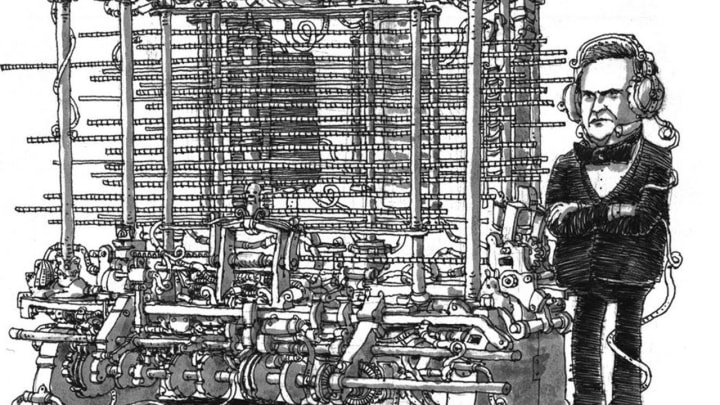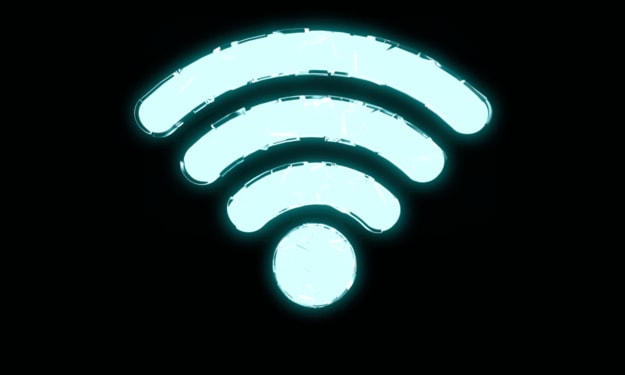Who Invented the Internet?
Today, we're going to figure out who invented the internet. (No, it's not Al Gore.)

The internet has become about as ubiquitous and widespread as air, water, and food. It's considered to be one of the most revolutionary inventions in human history, and has changed the way society behaved ever since.
We use the internet for everything from ordering food, to keeping in touch with relatives, to finding out about the Kardashians that we are so adamant about keeping up with. Despite how commonplace the net's use has become, most of us don't really know much about how it works—let alone its history.
The internet has become the place to trade dark web horror stories, start investing in cryptocurrencies, and also just write about daily life. It's a strange home we all have, accessible via a screen.
For example, let's just take the invention of the net altogether. Who invented the internet? Believe it or not, it's not the meme answer of Al Gore. Here's the truth about how the world's most important invention came to be.
Believe it or not, the concept of the internet is about 100-ish years old.

Before we talk about the people who invented the internet, let's talk about the people who invented the concept of the net. The idea of using a net to communicate has been around for far longer than we would have believed.
Computers have been around since the 1820s, when Charles Babbage created a "computational machine" capable of adding and subtracking huge amounts of numbers.
It was actually Nikola Tesla who toyed around with the idea of a "world wireless system," something that we would later know as Wi-Fi. According to historians, he was thinking about this concept as far back as the early 1900s.
However, the tools to create a Wi-Fi world just didn't exist in the 1900s.
Even computers themselves were too rudimentary for something like the concept of the net. They didn't even have a method of storing data, let alone a way to communicate that data from one machine to another. An electronic, programmable computer wasn't even invented until the 1940s!
The internet can't really exist without the use of data communication. So, it took a while for computers to catch up. That being said, during the time it took for tech to catch up, there were several others who discussed the concept of the internet.
Marshall McLuhan, for example, saw the potential for a "global village" of information via technology. Another thought leader, Vannevar Bush, came up with the idea of "Memex," a network which would allow people to access files through a series of links.
It was only during the 1960s when the internet's invention was even possible.

Interestingly enough, government officials saw a huge amount of potential in an invention like the net. More specifically, they appreciated the idea of being able to transmit documents electronically and communicate via the net.
As far as the people who invented the internet go, that credit technically would go to the U.S. Department of Defense. They were the ones who made the first rudimentary form of internet, an invention known as ARPANET. That technically makes it one of the military inventions that you use every day.
ARPANET was pretty revolutionary.
ARPANET, also known as the Advanced Research Projects Agency Network, used a technique called "packet switching" to put two computers onto the same network. This allowed people to be on a closed-access network that pooled data and documents.
However, that's not much of an internet, is it? Well, that's because ARPANET was really just the precursor to what we know today. It took two scientists to transform ARPANET into something more internet-y...
Historians generally agree that two scientists in particular helped invent the modern internet.

TCP/IP, two of the most important aspects of the modern internet, were invented by Robert Kahn and Vinton Cerf. These protocols created an interconnected network of computers that shared data and were able to communicate with one another. (Interconnected networks ended up getting shortened to "internet.")
It took them years to fully create, and was only really invented in 1983. ARPANET quickly adopted the protocols. This made ARPANET far more powerful and capable of handling more data than ever before.
By this time, ARPANET had grown so large it began to establish networks within networks. Most of the time, when people discuss the scientists who invented the internet, they're talking about Cerf and Kahn. They were the ones who made it all possible.
Though Cerf and Kahn are given credit for the net, it's important to note that it really was a team effort.
One of the other scientists who invented the internet was a man by the name of Tim Berners-Lee. Berners-Lee is the engineer who created the World Wide Web.
The World Wide Web was what allowed communication between a hypertext transmission protocol and an internet server. His invention also created the first internet browser.
That "http" you have in URLs? That's a sign you're on the web, and that's what he created. That's what made the internet accessible for most people, and what helped create the Age of the Internet.
The internet is the whole package of inventions we've discussed so far, plus more. That being said, most people think of the internet and assume that it means the World Wide Web. One can argue that Tim Berners-Lee is the guy who invented the internet.
Oddly enough, this slice of the net was only invented in 1989, making it only 29 years old.
What's interesting is that it took years for both web browsers and search engines to become widespread.
After Berners-Lee created the World Wide Web, it took him about a year to create the first internet browser. The browser, called WorldWideWeb, was released around 1991 and allowed people to look for websites as long as they knew the web address.
WorldWideWeb was the first graphical user interface browser to exist, and made the net more approachable for non-scientist users. By 1993, Cello became the first browser to run on Windows computers.
That being said, it took a while for something really important to the net to be created...
Search engines took another couple of years after the invention of browsers.
Another group of people who invented the internet as we know it today were the guys who created search engines. Search engines really started around 1993.
One of the first engines to make it to the net was the W3Catalog, which didn't actually use crawlers to detect engines. Rather, the W3Catalog used the fact that others kept lists of popular websites to curate their pages. Due to the rapid expansion of the internet, the site couldn't keep up with the demand for content.
The W3Catalog was a creation of developer Oscar Nierstrasz, and is generally seen as one of the very first attempts at a search engine. Sadly, its success was very short-lived and ended up lasting a total of 3 years before its creator pulled the plug on the engine.
Much like the internet itself, the invention of the internet involved a lot of people working together to create something amazing. It involved a lot of imagination, talent, and creativity to bring about the revolution known as the internet—not to mention everything else it's created.
Pretty powerful, isn't it?
About the Creator
Iggy Paulsen
Iggy Paulsen is a fan of anything and everything wholesome. He loves his two dogs, hiking in the woods, traveling to Aruba, building DIY projects that better humanity, and listening to motivational speakers. He hopes to eventually become a motivational speaker himself.






Comments
There are no comments for this story
Be the first to respond and start the conversation.